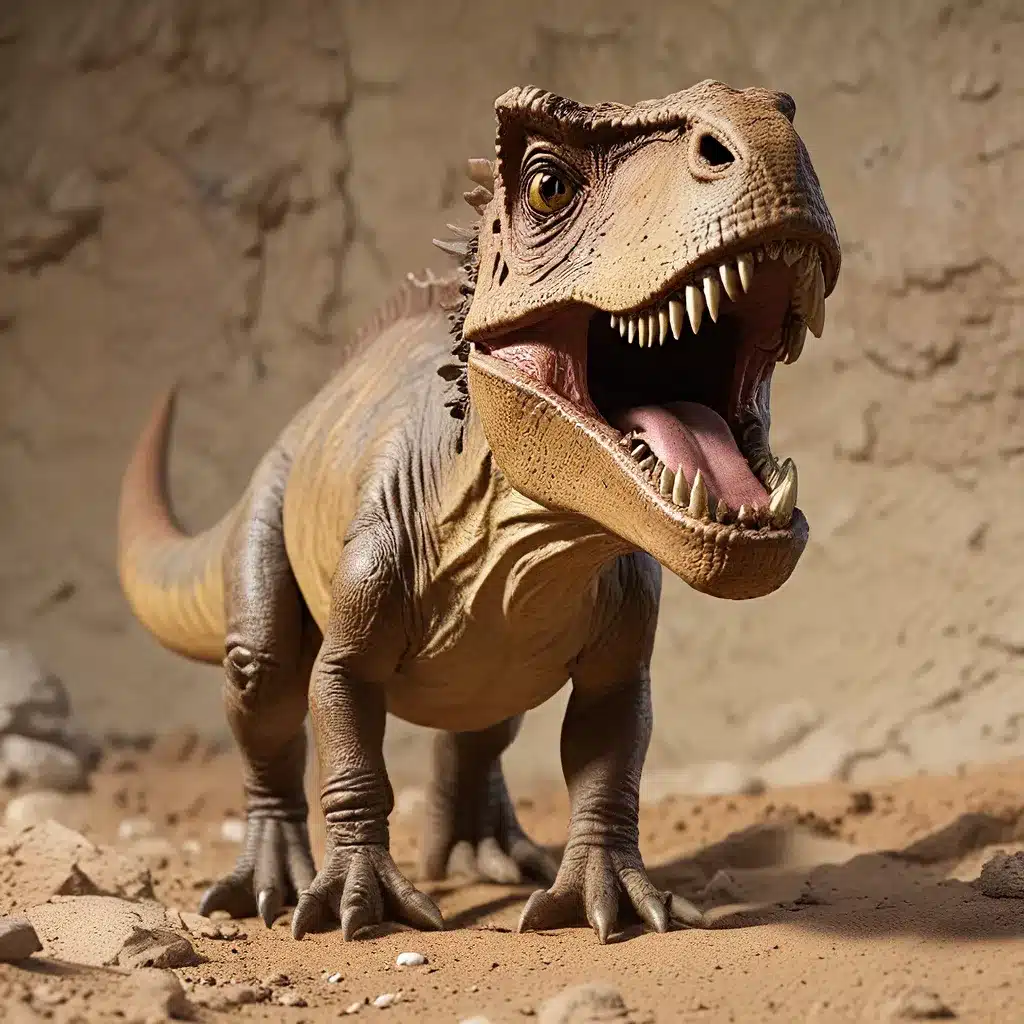
Paleontology, the study of ancient life through the examination of fossilized remains, has long captivated the public imagination. From the towering Tyrannosaurus Rex to the graceful Brachiosaurus, the sheer diversity and grandeur of dinosaurs have captured our collective fascination. However, the story of dinosaur discovery is not merely one of ancient giants; it is a tale of unexpected finds, cutting-edge research, and a continual unraveling of the mysteries that lie buried beneath the Earth’s surface.
Uncovering the Unexpected: Dinosaur Fossils in Surprising Places
The discovery of dinosaur fossils has often been a matter of serendipity, with unexpected finds turning up in the most unlikely of places. One such remarkable example comes from the small town of Pombal, Portugal, where a homeowner’s backyard renovation uncovered a treasure trove of prehistoric remains. In 2017, as construction work was underway, the unsuspecting owner noticed several fossilized bone fragments in the soil. Recognizing the significance of the find, the owner promptly contacted a team of researchers, setting in motion an investigation that would unveil the potential remains of a Brachiosaurid sauropod, one of the largest dinosaurs to have ever roamed the Earth.
According to reports, the excavation team has so far unearthed vertebrae and ribs from the massive creature, which they estimate to have been around 12 meters (39 feet) high and 25 meters (82 feet) long. The preservation of the skeleton is particularly noteworthy, with the ribs maintaining their original anatomical position, a relatively uncommon occurrence in the fossil record. As the project continues, researchers are hopeful that more of the dinosaur’s remains will be uncovered, shedding light on this extraordinary discovery.
The Persistence of Paleontology: Ongoing Excavations and Discoveries
The Pombal find is but one example of the persistent and patient work of paleontologists, who tirelessly scour the Earth’s surface in search of clues to the past. At the Penn Dixie Fossil Park & Nature Reserve in Hamburg, New York, visitors can engage in their own fossil-hunting adventures, unearthing Devonian period fossils that date back 380 million years. Ranked as the #1 fossil park in the United States, Penn Dixie has become a global geological treasure, recognized for its rich bounty of well-preserved trilobites, brachiopods, and crinoids.
The park’s website boasts that in 2018, it claimed the Guinness World Records title for the Largest Fossil Dig, with 905 participants. This achievement underscores the enduring public fascination with the ancient past and the thrill of making one’s own discoveries. By providing hands-on opportunities for exploration and education, Penn Dixie and similar institutions play a vital role in fostering a deeper appreciation for the wonders of paleontology.
Emerging Theories and Technological Advancements
As new discoveries continue to reshape our understanding of the prehistoric world, researchers are constantly re-evaluating existing theories and exploring innovative approaches to uncover the secrets of the past. The recent identification of a spinosaurid fossil on the Isle of Wight, off the southern coast of England, is a testament to this ongoing process of scientific inquiry.
According to CNN reports, the spinosaurid, a bipedal predatory dinosaur with a crocodile-like visage, was discovered in the region, providing new insights into the diversity and evolution of these ancient creatures. Meanwhile, in northern Patagonia, Argentina, the unearthing of a new species of carnivorous dinosaur measuring 11 meters (36 feet) long has challenged our previous understanding of these formidable predators.
Technological advancements have also played a crucial role in the field of paleontology, enabling researchers to analyze fossil remains with unprecedented precision and detail. From 3D scanning and digital reconstruction to advanced dating techniques, these innovations have opened new avenues for understanding the complex relationships between different species and the environmental conditions that shaped their evolution.
Preserving the Past: Challenges and Opportunities
As the field of paleontology continues to evolve, so too do the challenges and opportunities that come with the preservation of these fragile remnants of the past. The Hamburg Natural History Society, the non-profit organization that operates the Penn Dixie Fossil Park, is dedicated to the conservation of its site, ensuring that future generations can engage with and learn from these invaluable historical resources.
Through the support of local government entities, such as Erie County and the Town of Hamburg, as well as community contributions, Penn Dixie is able to maintain its facilities, staff educational programs, and uphold its mission of promoting the hands-on study of natural sciences. By fostering this unique blend of scientific research, public engagement, and environmental stewardship, the park serves as a model for how we can responsibly protect and showcase our shared prehistoric heritage.
Unlocking the Mysteries of Dinosaurs and Ancient Civilizations
The story of dinosaur discovery is inextricably linked to the broader field of archaeology and the study of ancient civilizations. Just as paleontologists uncover the physical remains of long-extinct species, archaeologists delve into the material cultures and social structures of our human ancestors, piecing together the complex tapestry of our collective past.
Across the globe, from the badlands of Patagonia to the backyard gardens of Portugal, these intrepid researchers continue to push the boundaries of our knowledge, unearthing unexpected treasures that challenge long-held assumptions and inspire new avenues of inquiry. By combining the latest scientific methods with a deep reverence for the past, they not only satisfy our curiosity about the ancient world but also illuminate the enduring connections between our present and the distant echoes of history.
As we explore the lost kingdoms and uncharted territories of our shared heritage, we are reminded of the boundless wonders that still await us, buried beneath the sands of time. The journey of discovery is an ongoing one, filled with the promise of new insights, groundbreaking theories, and the occasional unexpected find that captivates the imagination of the world.


